
Kasama: The Hidden Gem of Zambia
Nestled in the northern region of Zambia, Kasama serves as a serene getaway for tourists seeking a blend of natural beauty, cultural richness, and historical significance. This quaint city is the administrative center of the Northern Province and offers an authentic taste of Zambian life away from the bustling tourist hubs. One of the key attractions in Kasama is the breathtaking Chishimba Falls, a trio of stunning waterfalls that provide an excellent spot for nature walks, picnics, and photography. The local Bemba people consider these falls sacred, adding a layer of cultural depth to the natural wonder. For those interested in history, the Kasama Cathedral stands as a testament to the city’s colonial past, with its beautiful architecture and serene atmosphere. Kasama is also known for its vibrant markets where you can find local crafts, fresh produce, and traditional foods. The friendly locals are always eager to share stories and offer a warm welcome. Whether you’re exploring the natural reserves, visiting historical sites, or simply soaking in the local culture, Kasama promises a fulfilling and enriching experience.
Local tips in Kasama
- Visit Chishimba Falls early in the morning to avoid crowds and capture the best photos.
- Carry local currency (Zambian Kwacha) as many markets and smaller shops do not accept credit cards.
- Engage with the local Bemba people to learn more about their culture and traditions.
- The best time to visit Kasama is during the dry season from May to October when the weather is more predictable.
- Try traditional Zambian dishes at local eateries for an authentic culinary experience.
Kasama: The Hidden Gem of Zambia
Nestled in the northern region of Zambia, Kasama serves as a serene getaway for tourists seeking a blend of natural beauty, cultural richness, and historical significance. This quaint city is the administrative center of the Northern Province and offers an authentic taste of Zambian life away from the bustling tourist hubs. One of the key attractions in Kasama is the breathtaking Chishimba Falls, a trio of stunning waterfalls that provide an excellent spot for nature walks, picnics, and photography. The local Bemba people consider these falls sacred, adding a layer of cultural depth to the natural wonder. For those interested in history, the Kasama Cathedral stands as a testament to the city’s colonial past, with its beautiful architecture and serene atmosphere. Kasama is also known for its vibrant markets where you can find local crafts, fresh produce, and traditional foods. The friendly locals are always eager to share stories and offer a warm welcome. Whether you’re exploring the natural reserves, visiting historical sites, or simply soaking in the local culture, Kasama promises a fulfilling and enriching experience.
When is the best time to go to Kasama?
Iconic landmarks you can’t miss
Shoprite
Explore Shoprite in Kasama for a remarkable shopping experience filled with diverse products, local flavors, and unbeatable prices.
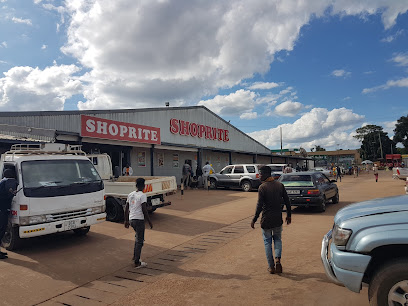
Chishimba Falls
Experience the breathtaking beauty of Chishimba Falls, a natural gem in Zambia, perfect for adventure seekers and nature lovers alike.
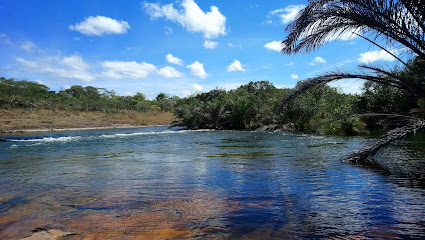
Sinamu Lodge Ltd
Discover the serene beauty of Kasama at Sinamu Lodge Ltd, a perfect blend of comfort and local charm in Zambia's stunning landscapes.
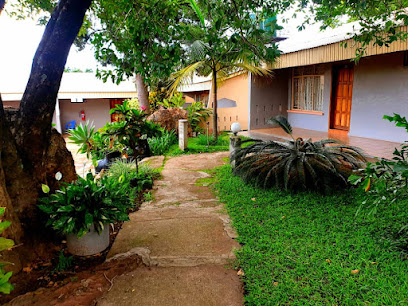
Fubest Mall
Discover the heart of Kasama at Fubest Mall, your go-to grocery store for fresh produce, local delicacies, and unique crafts.
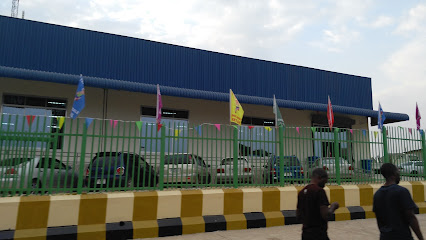
Thorn Tree Guest House
Discover tranquility and authentic Zambian hospitality at Thorn Tree Guest House, your perfect retreat in the heart of Kasama.
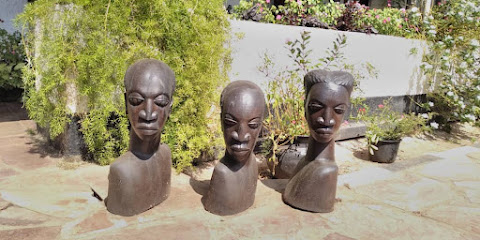
Nellas Lodge
Discover the beauty of Kasama while enjoying a comfortable stay at Nellas Lodge, a perfect retreat for relaxation and adventure in Zambia.
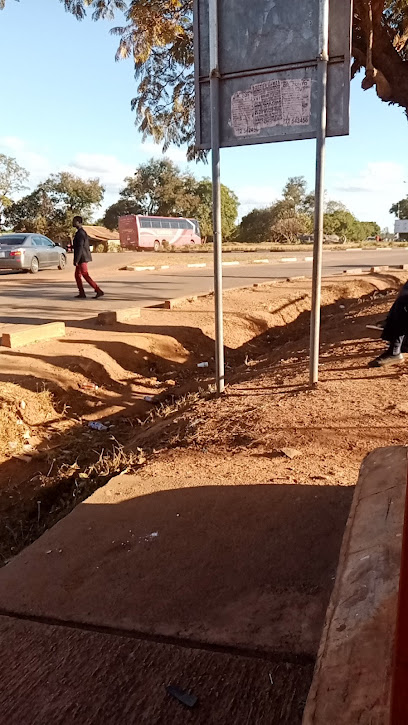
Mwela Rock Paintings
Explore the Mwela Rock Paintings – ancient art etched in time amidst Zambia's breathtaking landscapes, revealing the stories of our ancestors.
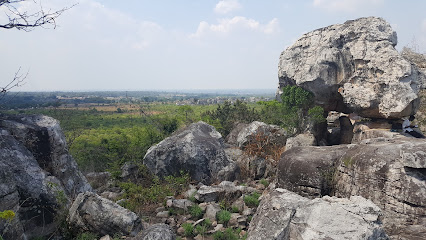
Kasama Airport
Discover the gateway to Zambia's natural beauty and cultural richness at Kasama Airport, the perfect starting point for your adventure.
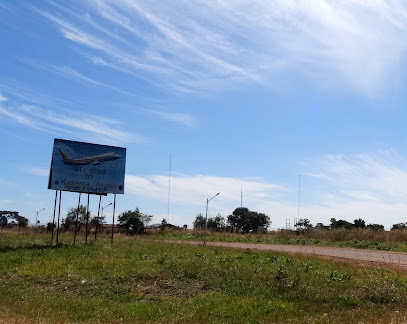
Chishimba falls
Experience the breathtaking beauty of Chishimba Falls in Kasama, a must-visit natural wonder showcasing Zambia's stunning landscapes and serene wildlife.
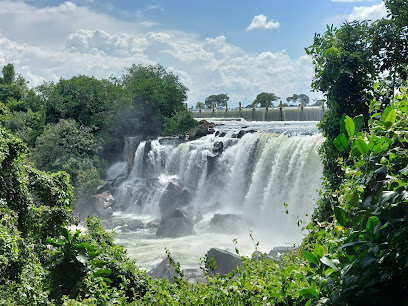
Kalebalika Cottages
Experience the serene beauty of Kasama at Kalebalika Cottages – a perfect retreat for relaxation and local exploration.
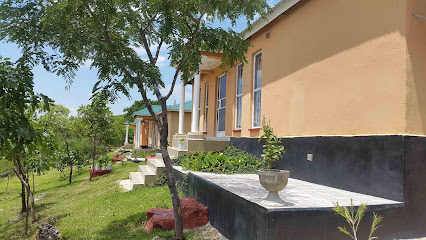
Chifulo Bar and Restaurant
Discover the essence of Zambian hospitality at Chifulo Bar and Restaurant, a must-visit destination in Kasama for a taste of local drinks and flavors.
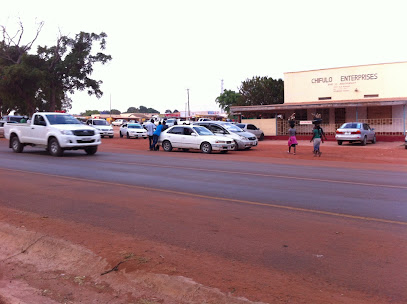
Mwankole Heritage Site
Explore the Mwankole Heritage Site in Kasama, a captivating tourist attraction rich in culture and history, celebrating the traditions of the Mwankole people.
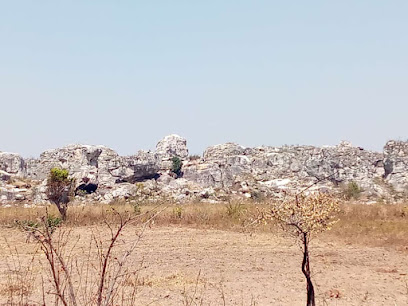
Location kasama
Discover the essence of Zambian culture and comfort at Location Kasama, your home away from home in the heart of Kasama.

Katedra św. Jana Apostoła w Kasamie
Discover the architectural beauty and spiritual significance of St. John the Apostle Cathedral in Kasama, Zambia's cultural gem.
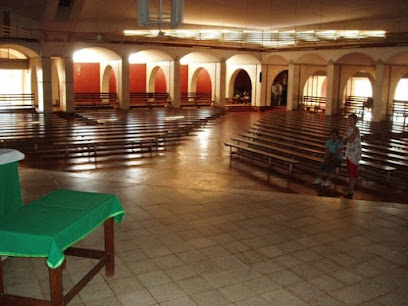
Kasama Sky view
Discover breathtaking views and rich history at Kasama Sky View, a must-visit historical landmark in Zambia.

Unmissable attractions to see
Chishimba Falls
Discover the breathtaking beauty of Chishimba Falls, where cascading water meets lush landscapes in the heart of Zambia.
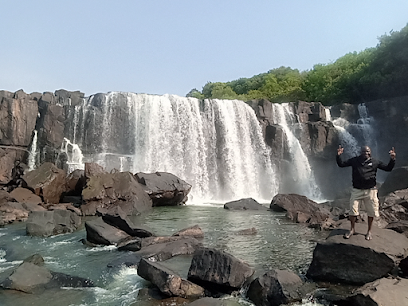
Mwela Rock Paintings
Discover the ancient Mwela Rock Paintings, a UNESCO site showcasing Zambia's rich cultural heritage and stunning natural beauty.
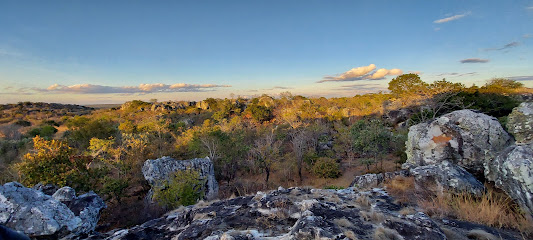
Chishimba falls
Discover the enchanting beauty of Chishimba Falls, a breathtaking waterfall near Kasama, Zambia, surrounded by lush landscapes and rich natural heritage.
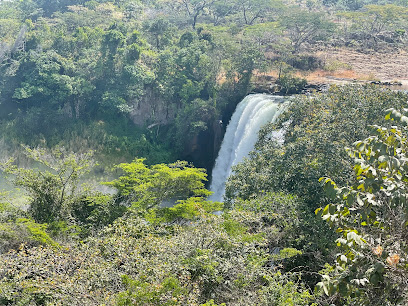
Mwankole Heritage Site
Experience the vibrant culture and rich heritage of the Mwankole people at the Mwankole Heritage Site in Kasama, Zambia, a must-visit for culture enthusiasts.
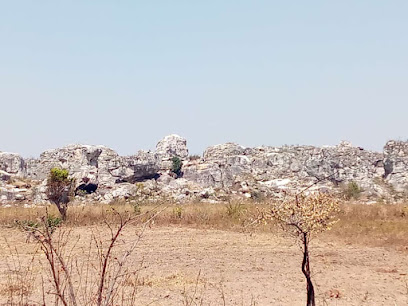
God's Balcony
Discover the breathtaking views and serene landscapes of God's Balcony in Kasama, Zambia – a true slice of paradise for nature lovers.

Lukupa River Zambia
Explore the serene Lukupa River in Zambia, a hidden gem near Kasama, offering breathtaking views and a peaceful escape into nature's embrace.

Essential places to dine
Kasama Grill Restuarant
Discover authentic Zambian cuisine at Kasama Grill Restaurant – where every meal tells a story of flavor and tradition.
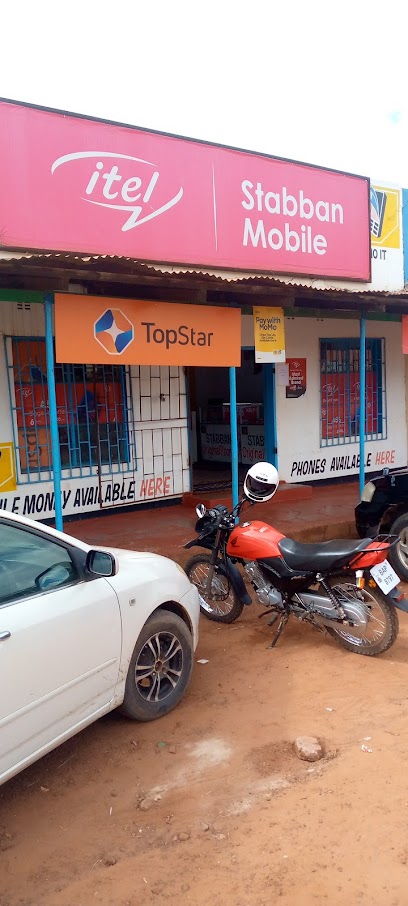
Hi-Five Bar and Restaurant
Experience authentic Zambian flavors at Hi-Five Bar and Restaurant in Kasama – where great food meets warm hospitality.
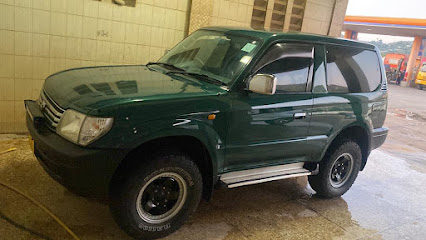
Gracewood Court Guesthouse
Experience Zambian hospitality at its best with cozy accommodations and local flavors at Gracewood Court Guesthouse in Kasama.
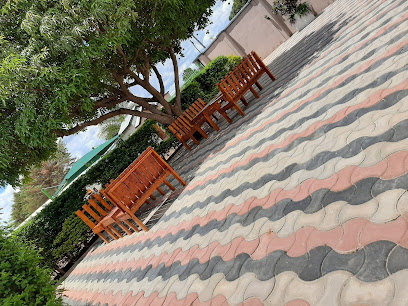
Scarlett
Discover authentic Zambian flavors at Scarlett in Kasama—where every meal tells a story.
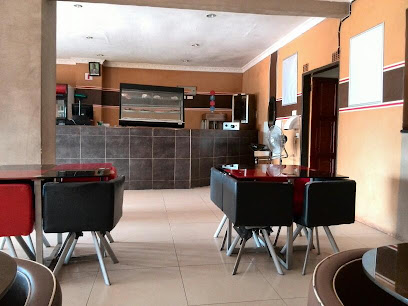
Kasama Golf Club Restraunant
Experience culinary delights amidst stunning landscapes at Kasama Golf Club Restaurant in Zambia.
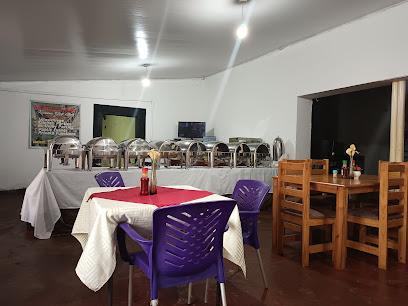
Tuwemi Fast Foods
Discover authentic Zambian flavors at Tuwemi Fast Foods in Kasama – where every meal tells a story.

Heritage Restaurant
Experience authentic Zambian cuisine at Heritage Restaurant in Kasama - where tradition meets taste.
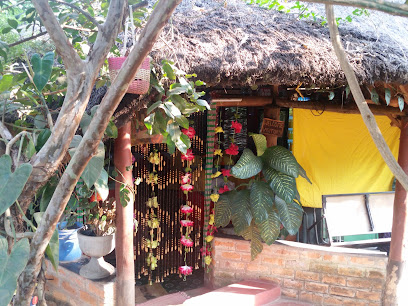
Finger Lickin' Foods
Experience authentic Zambian cuisine at Finger Lickin' Foods in Kasama—where every meal is a celebration of local flavors.

Kaka
Discover authentic Zambian cuisine at Kaka in Kasama - where every dish tells a story.

Deliceaux Cuisines
Experience authentic Zambian cuisine at Deliceaux Cuisines in Kasama – where flavor meets culture in a delightful dining atmosphere.
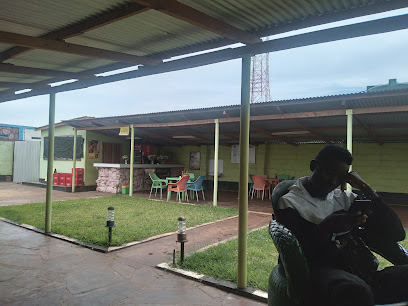
Deliceaux
Discover the delightful flavors of Zambia at Deliceaux in Kasama, where every meal is a celebration of taste and culture.
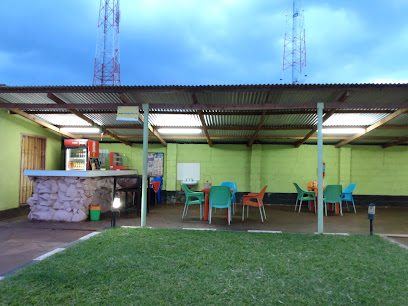
Thorn Tree Restaurant
Savor authentic Zambian cuisine at Thorn Tree Restaurant in Kasama – a delightful dining experience infused with local flavors.
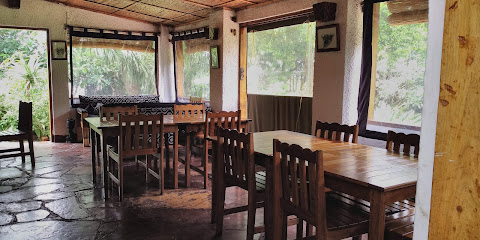
Axe Cap Restaurant
Discover authentic Zambian flavors at Axe Cap Restaurant in Kasama – where delicious food meets warm hospitality.

Maria's Place
Experience authentic Zambian cuisine at Maria's Place in Kasama - a culinary gem serving fresh local flavors in a welcoming atmosphere.

pafriciia bwalya
Experience authentic Zambian flavors at Pafriciia Bwalya in Kasama - a culinary journey through local traditions.

Markets, malls and hidden boutiques
Shoprite
Shoprite in Kasama: A vibrant department store offering a wide range of quality products and a delightful shopping experience for tourists and locals.
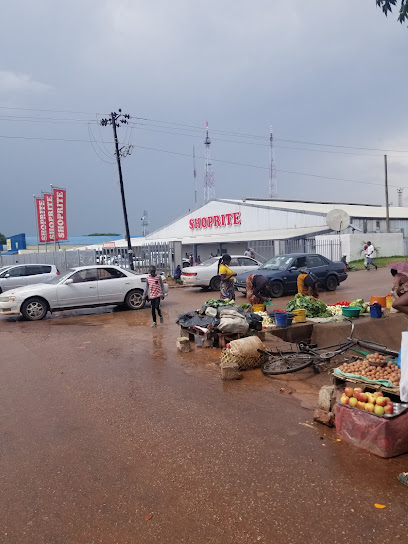
Fubest Mall
Discover the vibrant shopping experience at Fubest Mall in Kasama, offering a mix of local and international products for every traveler.
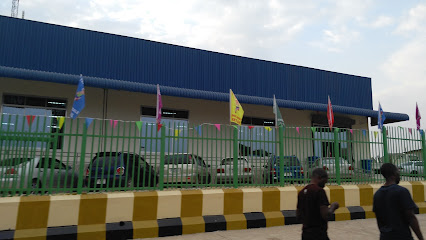
PEP Stores
Discover affordable fashion and local styles at PEP Stores in Kasama, where quality meets value for every traveler.
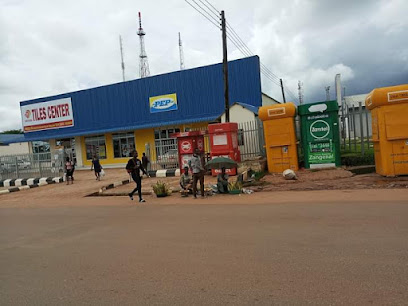
Katos
Discover the vibrant shopping experience at Katos in Kasama, where local culture meets modern retail in a welcoming atmosphere.
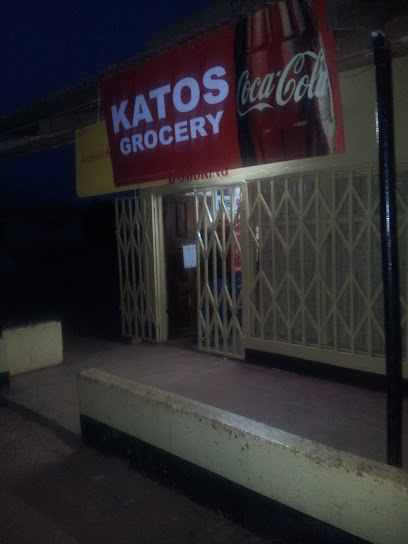
Majory Mwelwa' Clothing Shop
Discover unique fashion that reflects Zambian culture at Majory Mwelwa' Clothing Shop in Kasama. A must-visit destination for stylish souvenirs.

College Turnoff Pink Shop- Kasama
Explore the College Turnoff Pink Shop in Kasama for a delightful mix of local groceries and unique Zambian products, perfect for tourists.

CHEDGARS TRADINGS
Discover local culture and daily life at Chedgars Tradings in Kasama, your essential stop for unique Zambian goods.
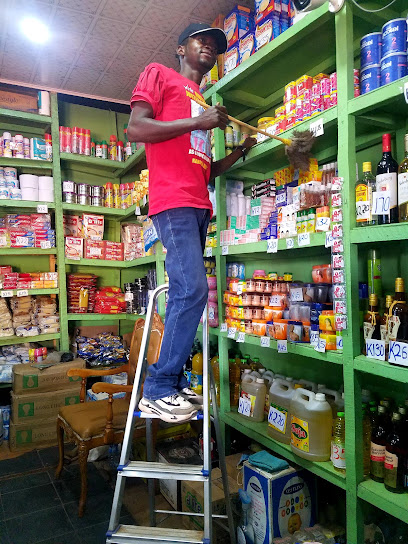
Chipamwamba Grocery Shop and Bar
Discover the charm of Kasama at Chipamwamba Grocery Shop and Bar, where local flavors meet community spirit in a vibrant shopping experience.

New coast manufacturing and trading
Discover unique Zambian fashion at New Coast Manufacturing and Trading in Kasama, where local craftsmanship meets vibrant style.
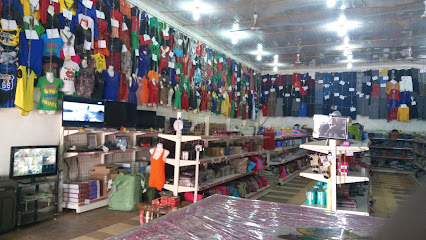
Mikotoko market
Experience the heart of Kasama at Mikotoko Market, where vibrant culture and local craftsmanship come together in an unforgettable shopping adventure.
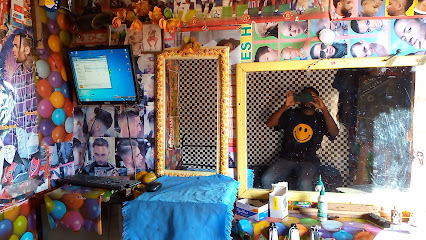
Big Ben General Dealers
Discover a world of electronics at Big Ben General Dealers in Kasama, where quality meets affordability for all your tech needs.
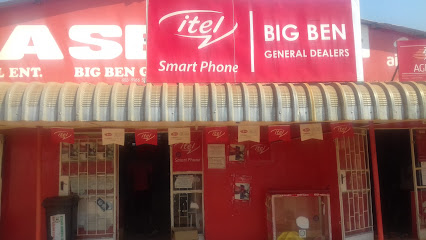
One kaoma shop
Explore the vibrant culture of Kasama at One Kaoma Shop, where local craftsmanship meets a unique shopping experience.
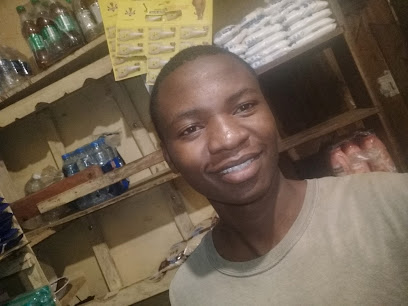
DAPP - Kasama
Discover unique pre-loved fashion treasures at DAPP - Kasama, a sustainable clothing store offering style and affordability in the heart of Kasama.

Mr. & Mrs Chisanga's home
Explore the authentic craftsmanship of Kasama at Mr. & Mrs. Chisanga's Home Goods Store, where local culture meets unique home decor.

Zambeef shop
Experience the finest selection of fresh and processed meats at Zambeef Shop in Kasama, a true haven for meat lovers and food enthusiasts.

Essential bars & hidden hideouts
Hi-Five Bar and Restaurant
Discover the vibrant culinary scene at Hi-Five Bar and Restaurant in Kasama, where grilled delicacies and local flavors create an unforgettable dining experience.
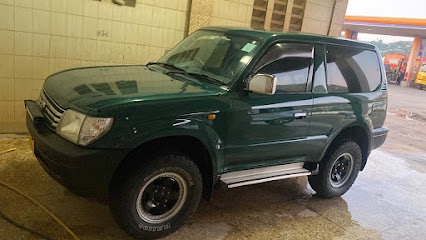
The Velvet Vault Pub n' Grill
Discover the vibrant atmosphere of The Velvet Vault Pub n' Grill in Kasama, a perfect spot for drinks, food, and great company.
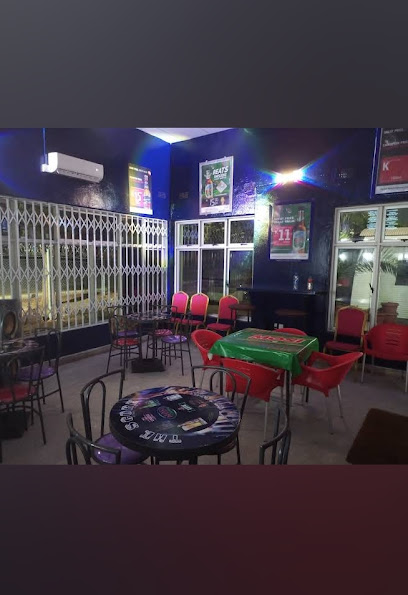
Divas Night Club
Dive into the vibrant nightlife at Divas Night Club in Kasama, where music, dance, and great company await you!

Legacy night club
Discover the heart of Kasama's nightlife at Legacy Night Club, where music, dance, and unforgettable moments await.

Chifulo Bar and Restaurant
Discover the vibrant flavors of Zambia at Chifulo Bar and Restaurant in Kasama, where local cuisine meets a friendly atmosphere.
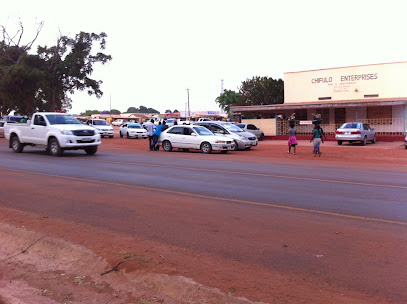
Lions Club
Experience the vibrant atmosphere of Lions Club in Kasama, a perfect blend of local culture, drinks, and socializing.

West villa
Discover West Villa in Kasama - a vibrant bar offering local and international drinks in a welcoming atmosphere.
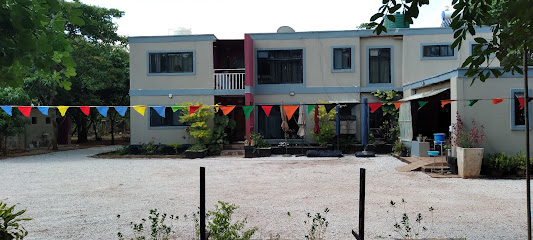
Nova pub
Discover the vibrant atmosphere at Nova Pub in Kasama, where locals and tourists connect over drinks and lively entertainment.
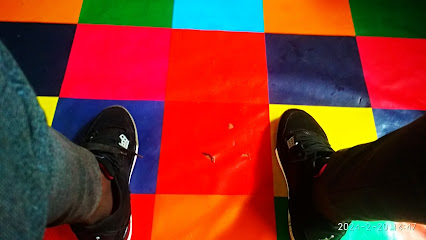
The Last Beer Bender
Discover the vibrant atmosphere and exquisite cocktails at The Last Beer Bender in Mukulumpe, Kasama, the perfect escape for tourists.
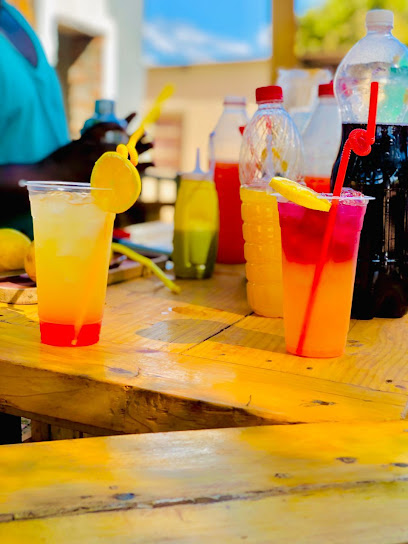
West Villa
Experience the vibrant atmosphere of West Villa, a must-visit bar in Kasama offering a diverse drink selection and a welcoming ambiance.

Park Pub and Grill
Experience the flavors of Kasama at the Park Pub and Grill, where local cuisine meets a cozy atmosphere amidst vibrant community life.
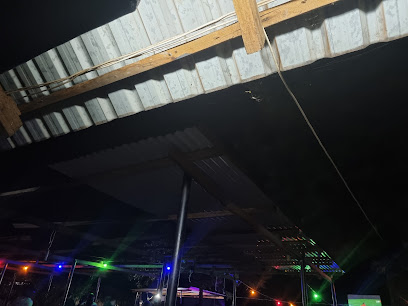
ZNS
Discover ZNS, the lively bar in Kasama offering a unique drink selection, a vibrant atmosphere, and a perfect spot for relaxation and socializing.

Ronald Musonda Bar
Discover the vibrant nightlife and local flavors at Ronald Musonda Bar, a must-visit spot in Kasama for a great night out.
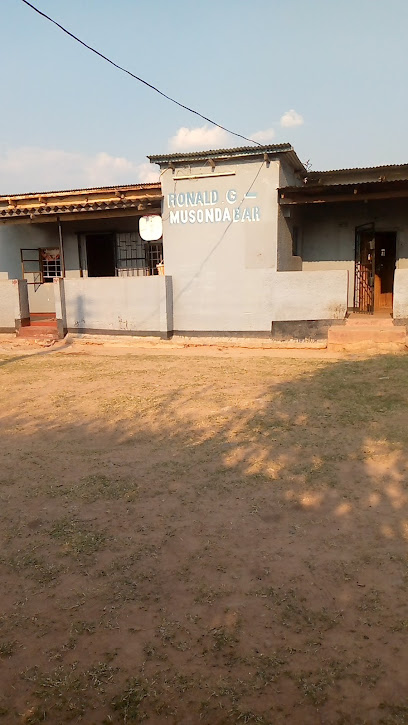
Scorpion
Experience the vibrant nightlife of Kasama at Scorpion, a lively bar offering refreshing drinks and a welcoming atmosphere.

Local Phrases
-
- HelloMwaiseni
[Mwai-se-ni] - GoodbyeSalamuka
[Sa-la-mu-ka] - YesEe
[Ee] - NoAwe
[A-we] - Please/You're welcomeTafadhali
[Ta-fa-dha-li] - Thank youTwalumba
[Twa-lum-ba] - Excuse me/SorryPeza
[Pe-za] - How are you?Muli shani?
[Mu-li sha-ni] - Fine. And you?Napangwa. Iwe?
[Na-pang-wa. I-we] - Do you speak English?Mwandikonda cinyanja?
[Mwan-di-kon-da ci-nyan-ja] - I don't understandSindikumvetsera
[Sin-di-kum-vet-se-ra]
- HelloMwaiseni
-
- I'd like to see the menu, pleaseNdikufuna kuyaona menu, chonde
[Ndi-ku-fu-na ku-ya-o-na me-nu, cho-nde] - I don't eat meatSindidya nyama
[Sin-di-dya nya-ma] - Cheers!Tukonkone!
[Tu-kon-ko-ne] - I would like to pay, pleaseNdikufuna kulipira, chonde
[Ndi-ku-fu-na ku-li-pi-ra, cho-nde]
- I'd like to see the menu, pleaseNdikufuna kuyaona menu, chonde
-
- Help!Chitani!
[Chi-ta-ni] - Go away!Pita!
[Pi-ta] - Call the Police!Pangani pulis!
[Pan-ga-ni pu-lis] - Call a doctor!Pangani daktala!
[Pan-ga-ni dak-ta-la] - I'm lostNili pansi
[Ni-li pan-si] - I'm illNili wogwilira
[Ni-li wo-gwi-li-ra]
- Help!Chitani!
-
- I'd like to buy...Ndikufuna kudzala...
[Ndi-ku-fu-na ku-dza-la] - I'm just lookingNdili kuoneka
[Ndi-li ku-o-ne-ka] - How much is it?Nthawi zina kuti?
[Ntha-wi zi-na ku-ti] - That's too expensiveIvi ndiye wachuluka kwambiri
[I-vi ndye wa-chu-lu-ka kwan-bi-ri] - Can you lower the price?Mukhoza kupanga chithunzi?
[Mu-kho-za ku-pan-ga chi-thun-zi]
- I'd like to buy...Ndikufuna kudzala...
-
- What time is it?Nthawi yake ndiyani?
[Ntha-wi ya-ke ndi-ya-ni] - It's one o'clockYaiti nthawi yomwe
[Ya-i-ti ntha-wi yom-we] - Half past (10)Nthawi ndi nthawi yodwala
[Ntha-wi ndi ntha-wi yo-dwa-la] - MorningUsiku
[U-si-ku] - AfternoonMawa
[Ma-wa] - EveningMawa
[Ma-wa] - YesterdayNakale
[Na-ka-le] - TodayLero
[Le-ro] - TomorrowMawa
[Ma-wa] - 1Moja
[Mo-ja] - 2Zawiri
[Za-wi-ri] - 3Zatatu
[Za-ta-tu] - 4Zane
[Za-ne] - 5Zachinayi
[Za-chi-na-yi] - 6Zachisanu
[Za-chi-sa-nu] - 7Zachitatu
[Za-chi-ta-tu] - 8Zachinayi nane
[Za-chi-na-yi na-ne] - 9Zachinayi kumi
[Za-chi-na-yi ku-mi] - 10Kumi
[Ku-mi]
- What time is it?Nthawi yake ndiyani?
-
- Where's a/the...?Ndiyani pakuti...?
[Ndi-ya-ni pa-ku-ti] - What's the address?Adilesi yomwe ndiyani?
[A-di-le-si yo-mwe ndi-ya-ni] - Can you show me (on the map)?Mukhoza kundipanga (pamapu)?
[Mu-kho-za kun-di-pan-ga (pa-mapu)] - When's the next (bus)?Nthawi yomwe yatayika (bus)?
[Ntha-wi yo-mwe ya-ta-yi-ka (bus)] - A ticket (to ....)Chithunzi (kuti ....)
[Chi-thun-zi (ku-ti)]
- Where's a/the...?Ndiyani pakuti...?
History of Kasama
-
Before the advent of colonial rule, Kasama was primarily inhabited by the Bemba people, one of the largest ethnic groups in Zambia. The Bemba established their kingdom in the region, and their influence can still be felt today in the local customs, language, and traditions. They engaged in farming, hunting, and ironworking, and had a well-organized social structure with chiefs and councils.
-
In the late 19th century, European missionaries began arriving in the Kasama area. The White Fathers, a Catholic missionary group, were among the first to establish a mission in 1895. They played a significant role in the spread of Christianity and Western education in the region. The influence of these missionaries is evident in the numerous churches and schools that dot the landscape of Kasama.
-
Kasama became a focal point during the colonial era when the British South Africa Company administered Northern Rhodesia, now Zambia. In 1898, Kasama was designated as the administrative capital of the North-Eastern Rhodesia territory. The town's strategic importance grew as it became a center for colonial governance and trade. This period saw the construction of infrastructure such as roads and administrative buildings, shaping the town's modern layout.
-
Kasama played a pivotal role in Zambia's struggle for independence from British colonial rule. The town was a hotbed of political activity, with many local leaders participating in the nationalist movement. Notably, Simon Mwansa Kapwepwe, a prominent figure in Zambia's independence struggle and the country's first Vice President, hailed from the Kasama region. His legacy is commemorated in various landmarks and institutions in the town.
-
Following Zambia's independence in 1964, Kasama continued to develop as an important regional center. The town saw investments in infrastructure, healthcare, and education. The establishment of the Kasama General Hospital and various educational institutions marked significant milestones in the town's growth. Kasama also became a hub for agricultural activities, with the surrounding areas producing crops such as maize, beans, and cassava.
-
Kasama is rich in cultural heritage, with the Bemba people maintaining many of their traditional practices. The Ukusefya Pa Ng’wena ceremony is one of the most significant cultural festivals celebrated in Kasama. This annual event, held in August, commemorates the migration and settlement of the Bemba people in the region. The festival features traditional dances, music, and rituals, offering visitors a vibrant and immersive experience of Bemba culture.
-
Kasama is not only significant for its historical and cultural heritage but also for its natural attractions. The Chishimba Falls, located approximately 33 kilometers from Kasama town, is one of the most spectacular waterfalls in Zambia. The falls are a sacred site for the Bemba people, who believe in the presence of spirits in the area. Visitors can explore the lush surroundings, enjoy the scenic beauty, and learn about the local myths and legends associated with the falls.
Kasama Essentials
-
Kasama is located in the Northern Province of Zambia. The nearest international airport is Kenneth Kaunda International Airport in Lusaka, approximately 850 kilometers away. From Lusaka, you can either take a domestic flight to Kasama Airport or travel by road. The road journey can take around 10 to 12 hours by bus or car. There are also trains operated by Zambia Railways from Lusaka to Kasama, offering a scenic but longer journey.
-
Kasama is a small town, and many of its attractions are within walking distance. For longer trips, local taxis are readily available and relatively inexpensive. Buses and minibuses (known locally as 'matatus') operate within the town and connect to nearby villages. Renting a car can also be a convenient option for exploring the surrounding areas at your own pace.
-
The official currency in Zambia is the Zambian Kwacha (ZMW). Credit cards are accepted in some hotels, restaurants, and shops, but it is advisable to carry cash, especially in smaller establishments and rural areas. ATMs are available in Kasama, but it is wise to withdraw sufficient cash in Lusaka before traveling to ensure you have enough funds.
-
Kasama is generally a safe destination for tourists. However, like any travel destination, it is advisable to take standard precautions. Avoid walking alone at night in unfamiliar areas and keep an eye on your belongings in crowded places. While Kasama doesn’t have specific high-crime areas targeting tourists, it is always best to stay vigilant and aware of your surroundings.
-
In case of emergency, dial 999 for immediate assistance. The local police station and medical facilities are available in Kasama. It is recommended to have travel insurance that covers medical emergencies. For minor health issues, there are pharmacies in the town where you can purchase over-the-counter medications.
-
Fashion: Do dress modestly, especially when visiting religious sites. Avoid wearing overly revealing clothing. Religion: Do respect local customs and traditions. Always show respect when visiting churches and traditional sites. Public Transport: Do be respectful and give up your seat to elderly passengers. Don’t eat or drink on public transport. Greetings: Do greet people with a handshake. A friendly smile and a 'Muli bwanji?' (How are you?) can go a long way. Eating & Drinking: Do try local delicacies and accept food offerings graciously. Don’t refuse hospitality, as it is considered impolite.
-
To experience Kasama like a local, visit the local markets where you can buy fresh produce and traditional Zambian goods. Engage with locals, as they are often friendly and willing to share stories about the town's history and culture. Don’t miss visiting the Chishimba Falls, one of the most beautiful natural attractions in the area. For a unique experience, visit the Kasama Cathedral, a historic site with stunning architecture.
Trending Landmark in Kasama
Nearby Cities to Kasama
-
Things To Do in Mbeya
-
Things To Do in Karonga
-
Things To Do in Mzuzu
-
Things To Do in Nkhata Bay
-
Things To Do in Chipata
-
Things To Do in Ndola
-
Things To Do in Kitwe
-
Things To Do in Lilongwe
-
Things To Do in Salima
-
Things To Do in Kabwe
-
Things To Do in Iringa
-
Things To Do in Solwezi
-
Things To Do in Tabora
-
Things To Do in Kigoma
-
Things To Do in Mangochi






